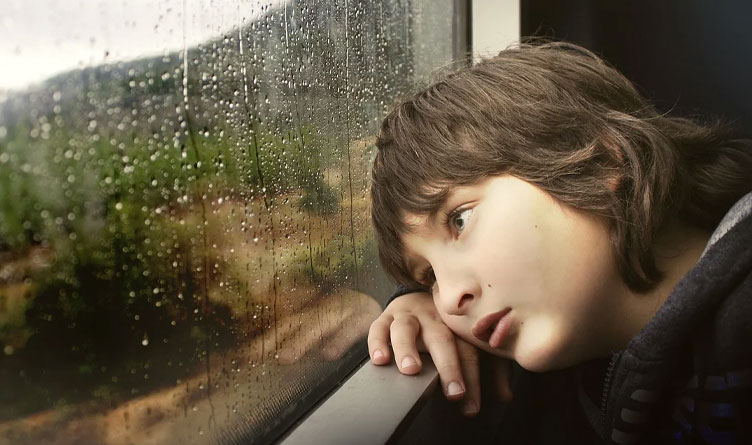Photo Credit: Shlomaster / Pixabay
Brown University study forecasts a generation with lower IQs, diminished social skills…
By Bethany Blankley [Just The News via The Center Square] –
A growing body of academic research is chronicling the toll that pandemic lockdowns imposed on children, indicating that the mental and social anguish the policies caused outweigh the health protections.
The “overall impact of COVID-19 restrictions on the mental health and well-being of children and adolescents is likely to be severe,” an Oxford University professor warned in a recent analysis.
A study published by Brown University said lockdowns, mandates and other restrictions are likely to create a generation of children with lower IQs and signs of social brain damage.
Other studies have reported increased mental illnesses presenting among minors impacted by ongoing lockdown policies, stress and isolation from their peers, as well as unfounded fears associated with the coronavirus, which killed fewer than 800 of the 73.3 million Americans under the age of 18.
Some of the most compelling findings are based on research of children continuously enrolled in a program in Rhode Island run by Brown University and its Warren Alpert Medical School since 2009.
Known as the RESONANCE study, researchers and medical professionals have been conducting a longitudinal analysis of child health and neurodevelopment, which is now part of a National Institutes of Health (NIH) program.
The RESONANCE cohort includes roughly 1,600 caregiver-child dyads “who have been continuously enrolled between 0 and 5 years of age since 2009 and have been followed through infancy, childhood, and early adolescence,” the report states. The subjects offer a “unique opportunity to explore the impact of the COVID-19 pandemic on child health trends in RI, which may reflect broader trends in the US.”
In early 2020, public health officials began imposing restrictive policies to limit the spread of the coronavirus. They issued stay-at-home orders, requiring the closing of nonessential businesses, daycare centers, schools, and playgrounds, as well as imposed restrictions on other activities.
Lockdown policies helped create fear among parents, who worried about getting sick or losing their jobs, the researchers said. But parents who could work from home did and faced challenges balancing their work and providing full-time care for their children who were also home.
“Not surprising, there has been concern over how these factors, as well as missed educational opportunities and reduced interaction, stimulation, and creative play with other children might impact child neurodevelopment,” the researchers explained.
Using their ongoing longitudinal study of child neurodevelopment, the Brown scientists examined general childhood cognitive scores in 2020 and 2021 compared to the preceding decade, 2011-2019.
They concluded that children “born during the pandemic have significantly reduced verbal, motor, and overall cognitive performance compared to children born pre-pandemic,” with men and children in lower socioeconomic families being the most affected.
***Click HERE to support Conservative Journalism in Tennessee. We can’t bring you articles like this without your support!***
Results also found that “even in the absence of direct SARS-CoV-2 infection and illness, the environmental changes associated with the pandemic are significantly and negatively affecting infant and child development.”
Meaning, healthy children were significantly negatively impacted by public policies that disrupted their cognitive and emotional development.
Professor Carl Heneghan, the Director of Oxford University’s Centre for Evidence-Based Medicine, also published a study that found that “eight out of ten children and adolescents report worsening of behavior or any psychological symptoms or an increase in negative feelings due to the COVID-19 pandemic.”
“School closures contributed to increased anxiety, loneliness and stress; negative feelings due to COVID-19 increased with the duration of school closures,” the study found, with deteriorating mental health reported to be worse among females and older adolescents.
Adolescents above age 12 also fared worse than children under age 12, due to increasing peer pressure, social pressure, and other issues, the study found.
The report was based on 17 systematic reviews reporting child and adolescent mental health; three of which were preprints.
Researchers reported “anxiety, depression, irritability, boredom, inattention and fear of COVID-19 as predominant new-onset psychological problems in children during the pandemic.”
Lockdown policies and fear over the coronavirus caused “stress, worry, helplessness, as well as social and risky behavioral problems among children and adolescents,” with 13 studies reporting “a negative association between the COVID-19 pandemic and its impact on mental health.”
“Stressors for adolescents included the inability to see friends, arguments with parents, unresolvable disputes via social media, academic stress and feelings of isolation,” Heneghan’s analysis found.
When lockdown restrictions were first imposed last year, mental health-related visits to Emergency Rooms increased by 24 percent in ages 5–11 and by 31 percent in ages 12–17 compared to 2019 data, the CDC reported last year. The data is among several listed in a newly published Pediatric Health, Medicine and Therapeutics journal article that highlights the worsening mental health conditions of children in the U.S.
The journal also points to another report, which found that while pediatric emergency department visits for patients of all ages decreased during lockdown policies, pediatric visits for mental health conditions increased from 4% to 5.7%.
Another survey assessed 2,111 participants under age 25 who were diagnosed with psychiatric conditions during lockdown policies.
Among them, 83% said that they experienced a worsening of their condition during the pandemic and 26% said they weren’t able to access support services they needed.
Parent seem acutely aware of the consequences to the children. One survey found that 14% of parents reported worsening of underlying mental disorders among their children under lockdown.

About the Author: Bethany Blankley is a writer at the Center Square, Patheos/Hedgerow, political analyst and former press secretary at Capitol Hill / NY / WDC. Follow Bethany on Twitter @BethanyBlankley.




